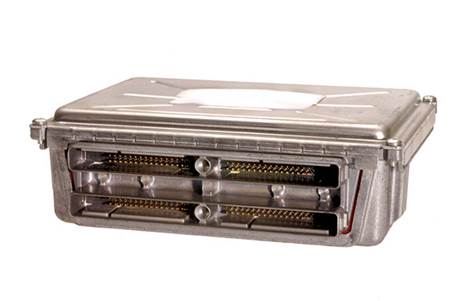The Powertrain Control Module, or PCM, is the central processing center for many of the electronic functions in a vehicle. When it has a problem, the entire car can have a problem. This automotive “brain” can affect everything from emissions to whether a car even starts. Determining whether trouble stems from the PCM itself can be an important step in a repair. Vehicle owners can benefit from learning first about how to diagnose these PCM issues and then by learning how to find and purchase necessary replacement parts on eBay.
Spotting Symptoms of a PCM Problem
Naturally, a PCM malfunction can present first as a problem in one of the systems it controls. For example, a “Check Engine” light in the dash may engage. A driver’s first instinct, as a result, is to check the engine or take it into a mechanic. After any mechanical issues have been addressed, however, a dashboard error light may continue to light up. In these cases, drivers may begin to consider a PCM problem. Another more obvious sign is when all the dashboard error lights engage and disengage continuously.
Using a Code Reader
As a next step, drivers can use a code reader to link into the PCM and determine whether an internal problem is an issue. These devices connect directly into a port known as the Onboard Diagnostic or OBD-II connector port. In the majority of modern vehicles, drivers can find this connector under the dashboard on the driver’s side of the car or truck. After plugging it in, drivers should turn on the car without turning on the engine to engage the car scanner. The device will initialize and begin scanning the system. As it finds errors, the scanner displays them on the device in the form of a code known as a Diagnostics Trouble Code, or DTC.
Recognizing PCM Problem Codes
Only the most seasoned, professional mechanic can recognize and understand various DTCs. For the layperson, having a reference for some of the common codes related to PCM performance can be helpful.
PCM DTC: PO600
Meaning: Indicates an Internal Control Module Memory Check Sum error
PCM DTC: PO601
Meaning: Indicates an Internal Control Module Memory Check Sum error
PCM DTC: PO602
Meaning: Indicates Control Module Programming error
PCM DTC: PO603
Meaning: Indicates KAM (Keep Alive Memory) error
PCM DTC: PO604
Meaning: Indicates an error with unit’s Random Access Memory (RAM)
PCM DTC: PO605
Meaning: Indicates an error with unit’s Read Only Memory (ROM)
PCM DTC: PO606
Meaning: Indicates a problem with the PCM Processor
PCM DTC: PO607
Meaning: Relates to Control Module Performance
PCM DTC: PO608
Meaning: Relates to Control Module VSS Output ‘A’ performance
PCM DTC: PO609
Meaning: Relates to Control Module VSS Output ‘B’ performance
PCM DTC: PO610
Meaning: Indicates Control Module Vehicle Options error
If a scan of the system reveals any of these codes, vehicle owners can assume that there is a PCM problem with the car. Running additional diagnostics, however, can help ensure that vehicle owners zero in on the right issue.
Additional Diagnostics for PCM Issues
After using a diagnostic tool on a vehicle, drivers should also conduct a few other steps to determine whether the PCM itself has an issue, or a related component such as a sensor is the problem. First, vehicle owners should look for any Technical Service Bulletins, or TCBs, released by either a PCM manufacturer or a car manufacturer. TCBs such as service recalls can let vehicle owners know right away that an issue exists with the PCM and that replacing it is necessary. Drivers should also keep an eye out for any software updates that might fix a problem.
If this approach reveals nothing, vehicle owners can then test the sensors in a PCM system. A sensor may be sending faulty information or no information. Using the diagnostic charts provided by the original equipment manufacturer, drivers should run tests on all the car sensors and inputs in a system. This may be time consuming, but well worth the effort, since a sensor can be far easier to replace than a PCM.

Diagnosing Powertrain Control Module Problems
by
Tags:

Leave a Reply